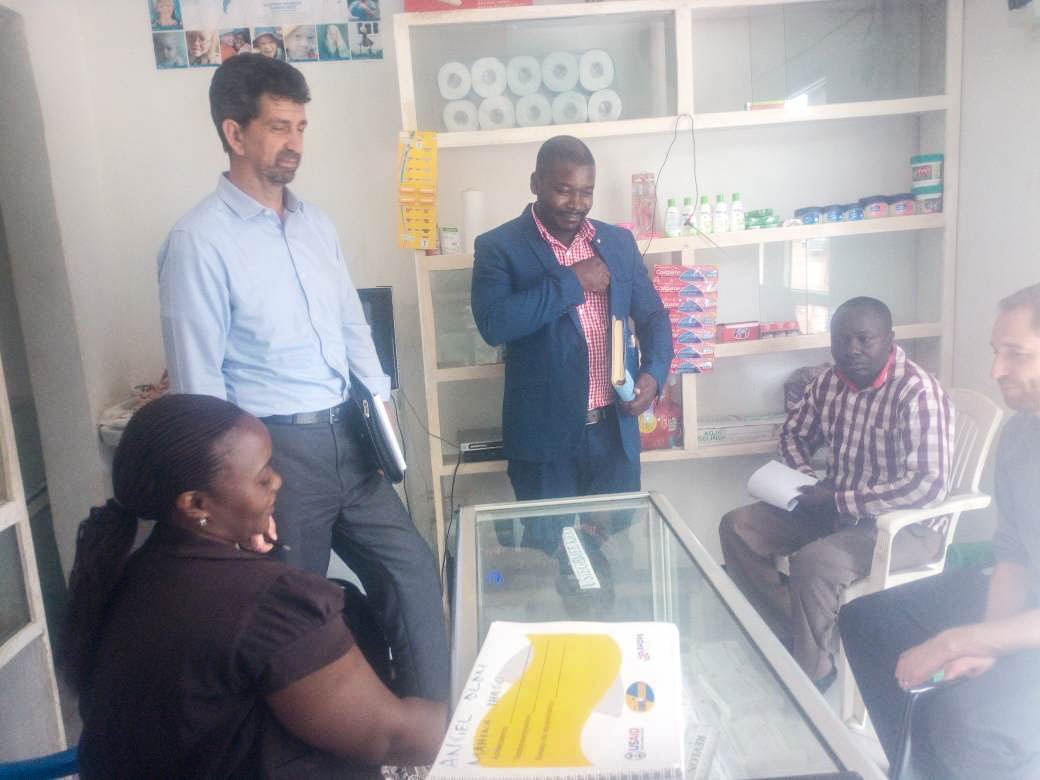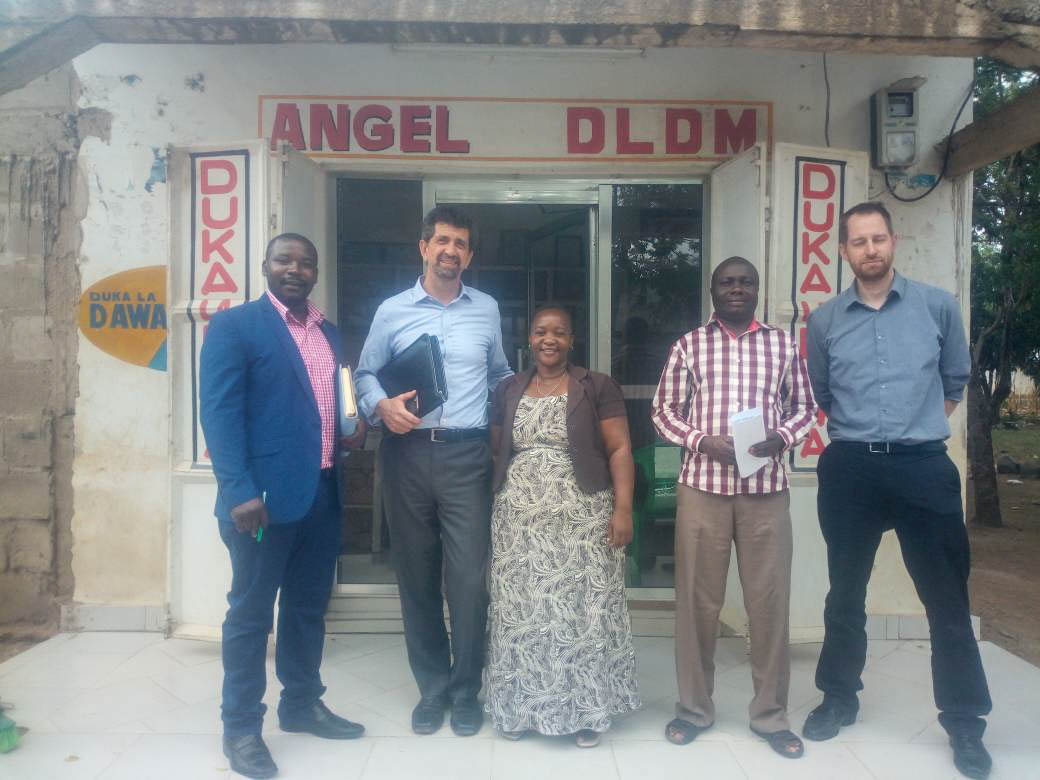Who is a Frontline Health Worker? Make Sure Pharmacists Are On Your List.
Gloria Nantulya & Kate Greene
Abt Associates
When you think of a health worker, who do you see? A doctor, nurse, midwife, or community health worker? If you didn’t think of a pharmacist of drug dispenser, consider adding them to your list. Pharmacists and dispensers around the world are important providers of health care, and they are often the first port of call for treatment or advice.
Mariam Derick Lima, owner of an accredited drug dispensing outlet (ADDO) in Tanzania, is a perfect example. “I have always had a passion for helping the community,” says Lima, who also works at a local school in the district. “I was moved to open this outlet based on the fact that there are very few in the community and it is a service greatly needed by the people.”
ADDOs, also called duka la dawa muhimu, are small drug and supplies outlets, located in rural and semi-urban settings in Tanzania. For 75% of the country’s rural population, they are the first entry point into the health system. With limited resources in the public sector, the private sector plays a critical role in increasing access to health services in the country. For example, among Tanzanian caregivers who seek care for sick children, 51% use the private sector, and 85% of private sector care seekers access a non-clinical source, like these outlets.

Lima goes over her books with SHOPS Plus staff in her ADDO
“Every Tanzanian woman and girl lives five kilometers from an ADDO,” says Maureen Ogada-Ndekana, Chief of Party for the USAID SHOPS Plus project in Tanzania. “These platforms have moved health commodities and services closer to women in Tanzania, allowing them to access information, services and referral for primary health care.”
SHOPS Plus, a USAID funded project, is working to strengthen the sustainability of ADDOs by building the capacity of their owners and dispensers, and by facilitating access to finance, one of their biggest challenges, so that they can expand and improve their services. The project does this by providing business and financial management training and helping these outlets secure loans. Owners and dispensers who complete the training course are eligible for continued support through coaching.

Lima in front of her ADDO with SHOPS Plus staff
By providing training and tools to ADDO owners and dispensers, SHOPS Plus is helping them develop businesses that are sustainable and able to withstand setbacks and emergencies. With support from SHOPS Plus, owners like Lima have been able to elevate the quality of their outlets and the services they provide. In addition to building business management capacity, support to ADDO owners promotes economic empowerment for women as, according to Ogada-Ndekana, 35% of ADDO owners and 80% of medicine dispensers at the retail outlets are women.
“They [SHOPS Plus] helped us see the business opportunity available even when serving your community, by providing us with the necessary tools to record our stock and sales,” said Lima. “For this I am very grateful, and request that the project continues to scale up in order for more ADDO business owners and dispensers to benefit.”
Learn more about SHOPS Plus work in Tanzania.
Today is World Pharmacists Day, recognizing the important frontline work done by pharmacists all over the world. This year’s theme is, “From research to health care: Your pharmacist is at your service.”
